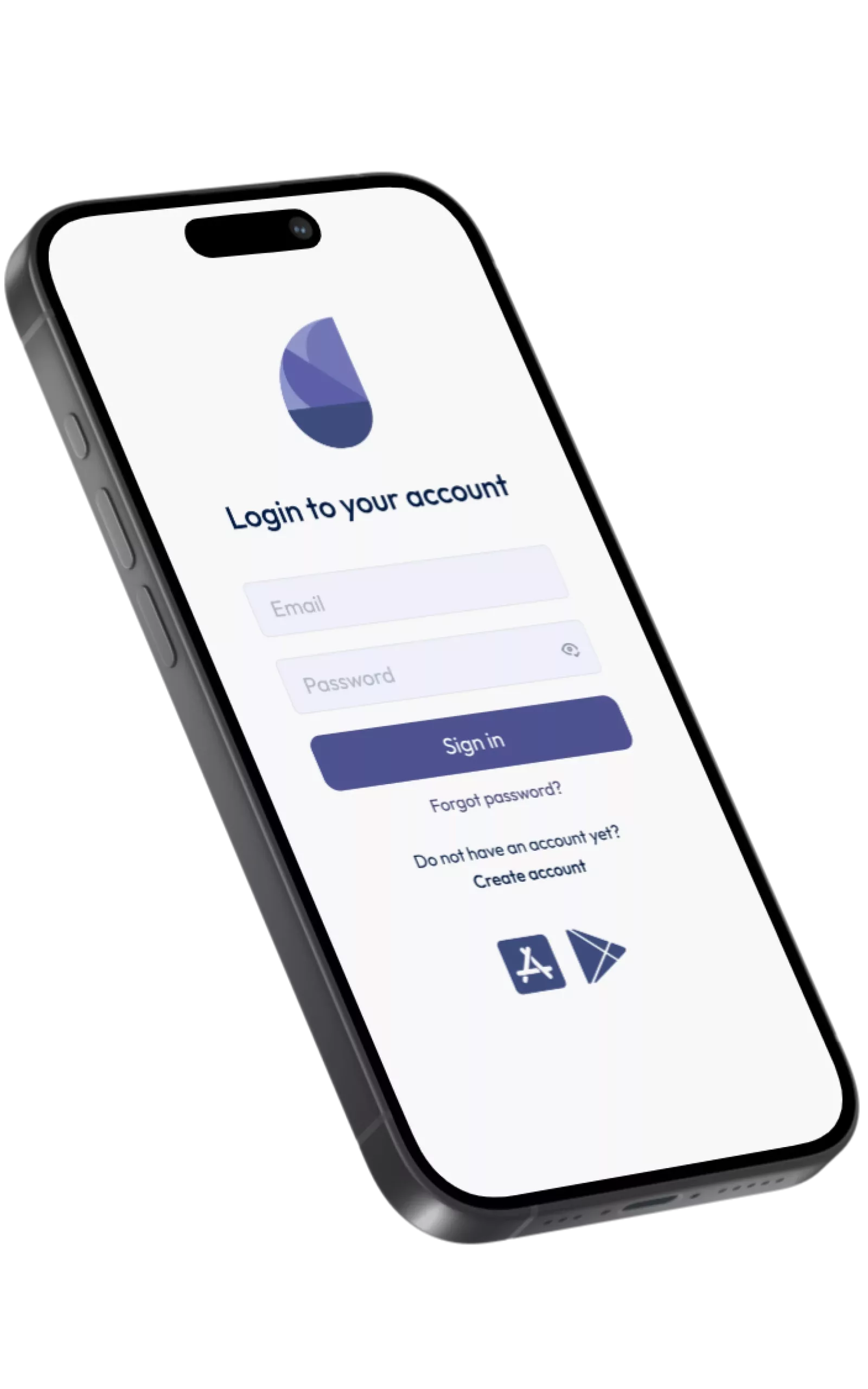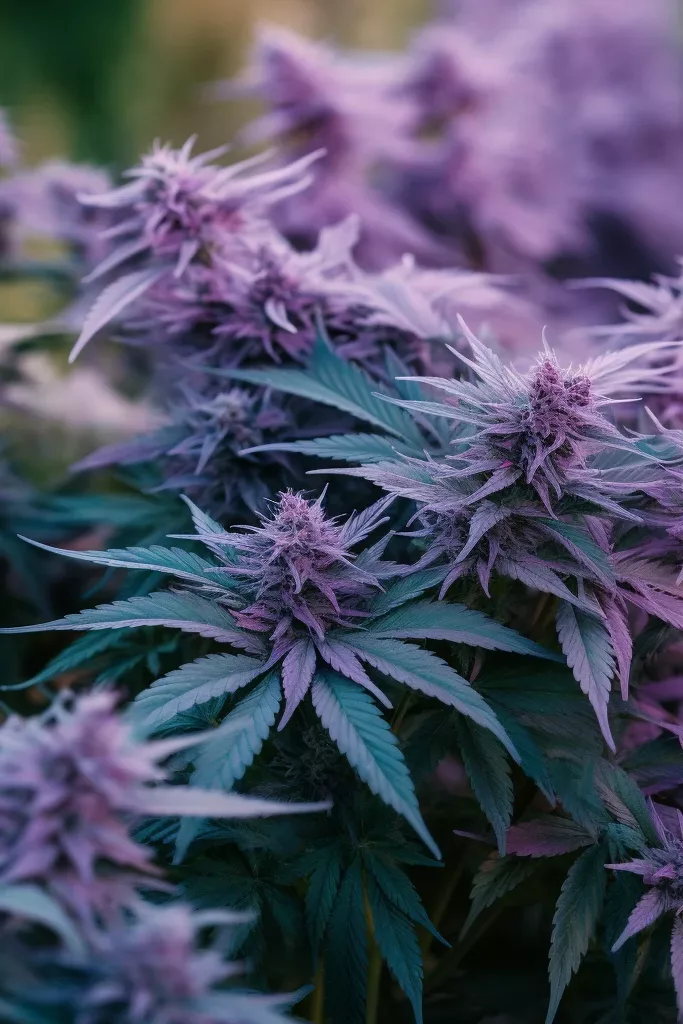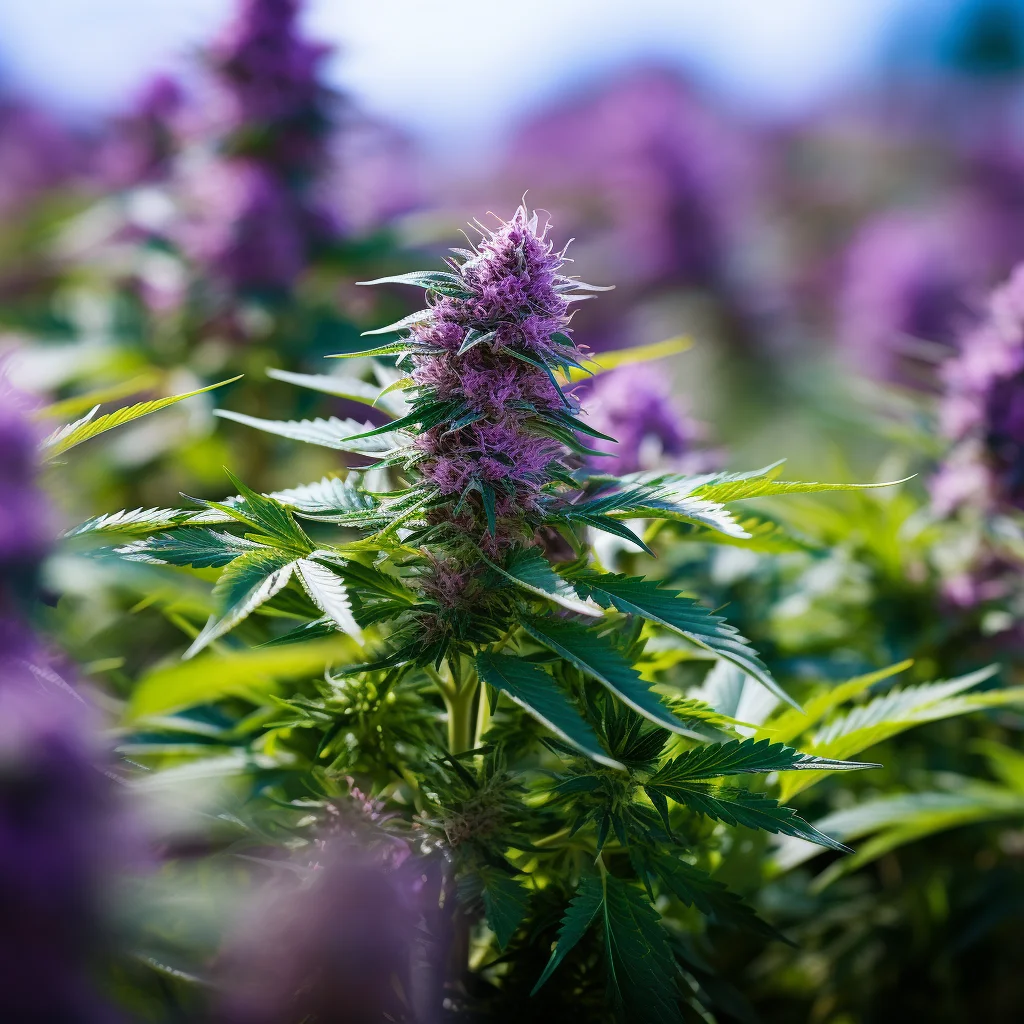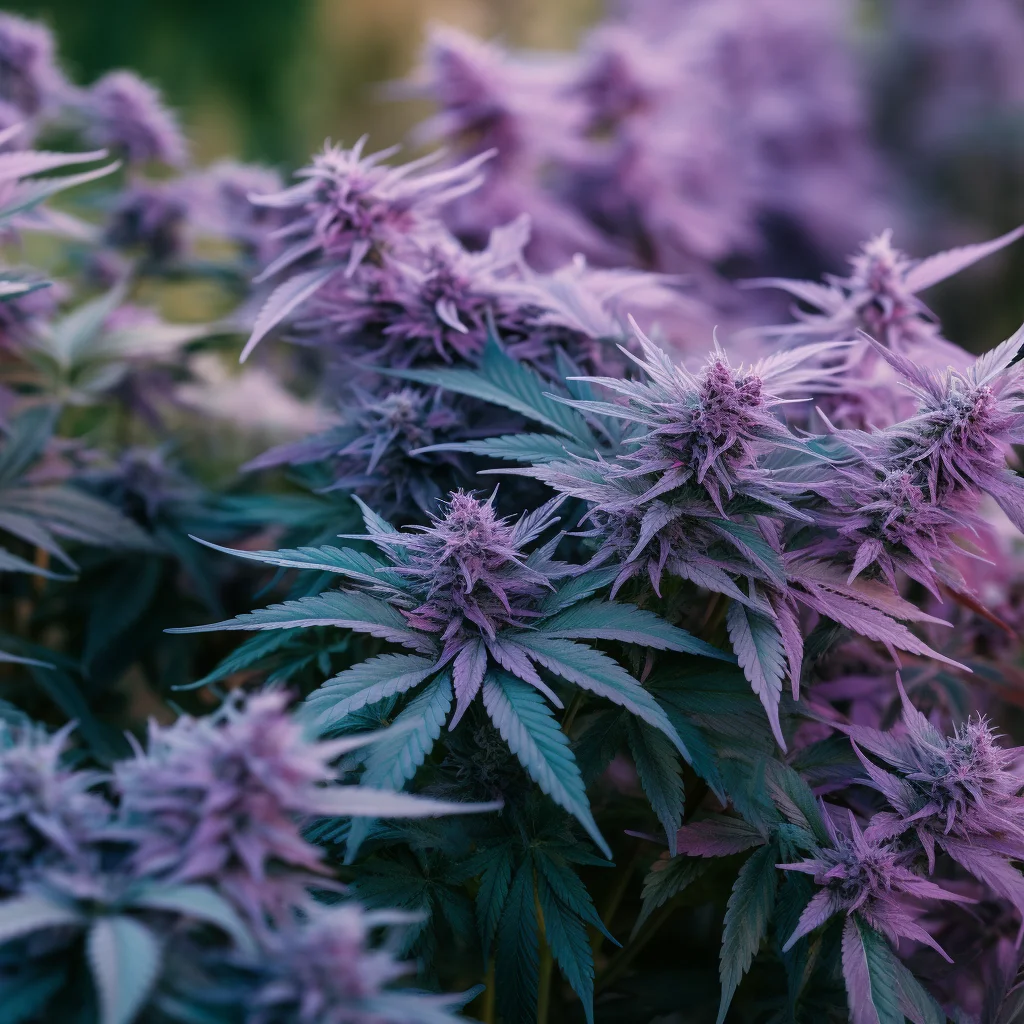Knowledge Hub
Mindful Healing: Medical Cannabis and OCD
Considering cannabis for OCD? Our expert team explore the topic and connect you with with private doctors for easy medical cannabis prescriptions delivered directly to your door.
Download the App and head to Find A Doctor to submit an enquiry.

Cannabis and OCD: An Introduction.
Obsessive Compulsive Disorder (OCD) is one of the less well understood mental health conditions, despite its high prevalence in the UK.
Whilst many patients respond well to more traditional approaches such as Cognitive Behaviour Therapy and medication such as Selective Serotonin Reuptake Inhibitors (SSRIs) and possibly even anti-depressants, some patients either fail to respond or don’t want to suffer from the side effects of licensed medication.
For patients looking for an alternative obsessive-compulsive disorder treatment, cannabis and OCD is a fast-emerging topic of discussion. Medical cannabis may offer a natural alternative to ineffective traditional medication, and more and more patients are being prescribed cannabis for OCD in the UK.
Want to understand more about cannabis and OCD? Want to know what is the most effective treatment for obsessive-compulsive disorder? Want to know about cannabis oil and OCD?
In this article, we’ll take an in-depth look at all key areas to make sure that you’re fully clear on cannabis and OCD in the UK, including how to connect to a private psychiatrist that can prescribe for OCD today.
Contents

Start Today
Medical Cannabis and OCD: Your Journey With Script Assist
Looking for a medical cannabis prescription for OCD? Connect with a private psychiatrist today via Script Assist for a personalised treatment plant and a fully streamlined digital journey.
01
Check your eligibility
To understand whether you’re likely eligibly for medical cannabis for OCD, take our two minute quiz.
02
Find a Private Psychiatrist
If you head over to our Find a Doctor Page, you can choose a private psychiatrist able to prescribe medical cannabis for OCD.
If you intend on using your private medical insurance, choose a doctor that has matching insurance cover.
03
Book, Pay & Join a Consultation
You can book, pay for and join consultations directly through your Script Assist Patient App.
Get your authorisation code ready before payment if using your private medical insurance.
Connect with a Private Psychiatrist Today to Discuss OCD and Medical Cannabis.
04
Pay and Track Your Prescription via the App
Simply pay for your medical cannabis prescription via the Script Assist Patient App and then track delivery to your doorstep.
05
Request Your Repeat
Request a repeat prescription via the Script Assist Patient App when you run out of medication.
Find a Private Psychiatrist That Prescribed Medical Cannabis for OCD

Download Our Patient App
Connect with a private specialist prescribing via Script Assist for your condition.

Find a Specialist
Quickly match with UK specialists prescribing for your condition.
Check Insurance Coverage
Review doctor profiles, compare fees, and verify insurance coverage.
Get Started
Settled on a doctor? Schedule your app consultation effortlessly.
Want to understand more about cannabis and OCD? Want to know what is the most effective treatment for obsessive-compulsive disorder? Want to know about cannabis oil and OCD?
In this article, we’ll take an in-depth look at all key areas to make sure that you’re fully clear on cannabis and OCD in the UK, including how to connect to a private psychiatrist that can prescribe for OCD today.

What are the symptoms of OCD?
Most people don’t understand what the actual symptoms of OCD are, and simply assume it’s a desire to keep everything neat and tidy.
OCD is split into two components:
- Obsessions: constant unwanted intrusive thoughts often related to irrational fears.
- Compulsions: responses to constant unwanted intrusive thoughts to find temporary relief.
Let’s take a quick look at some example obsessions and compulsions. Feel free to skip ahead if you’re a patient and just want to know more about cannabis and OCD!
- Obsession: Fear of Causing Harm
- Example Compulsions: constantly checking whether appliances are turned off, doors and windows are locked, and alarms are switched on.
- Obsession: Fear of Contamination
- Example Compulsions: constantly washing hands and cleaning surfaces.
- Obsession: Fear of Mistakes
- Example compulsions: Excessive double-checking of work, re-organising, or spending an endless amounts of time ensuring perfection.
- Obsession: Fear of Disorder
- Example compulsions: Arranging objects in a precise manner, aligning items symmetrically, or repeating actions until they feel ‘just right’.
- Obsession: Religious or Morale Obsessions
- Example Compulsions: excessive praying, confessing, or reading religious texts.
- Obsession: Intrusive Sexual Thoughts
- Example compulsions: constantly engaging in mental rituals to contain thoughts such as counting, praying, or repeating specific phrases.
Living with OCD is exhausting, time-consuming and often debilitating. For those patients that don’t respond to traditional therapies or medication, medical cannabis represents an alternative, natural option for those looking for an alternative obsessive-compulsive disorder treatment.
Want to know does cannabis help OCD? Ready to Talk to a Psychiatrist That Can Prescribe Cannabis for OCD?


What are the causes of OCD?
Let’s try and simplify the causes of OCD, not a simple task! Before we start its important to understand that causes of OCD are hypothesis only and not necessarily proven by well-evidenced scientific data.
Brain Activity
Several parts of the brain show overactivity in OCD enabling us to understand a little about exactly why OCD patients suffer from constant intrusive thoughts.
- The orbitofrontal cortex: responsible for decision-making and processing rewards, possibly leading to the characteristic doubt and indecision.
- The anterior cingulate cortex: central to emotional regulation and detecting errors, potentially contributing to the heightened sense of anxiety and the need to correct perceived mistakes.
- The basal ganglia: involved in habit formation and routine behaviours, maybe leading to the rigid, repetitive behaviours.
Neurotransmitter imbalances and genetics
Whilst an imbalance in serotonin has long been associated with OCD, more recently additional evidence has emerged suggesting that imbalances in other neurotransmitters such as dopamine or glutamine. Each of these neurotransmitters may help to shed more light on the causes of OCD.
- Serotonin: helps the brain regulate mood, which may explain the underlying feelings of anxiety.
- Dopamine: supports the brain’s risk and reward motivation systems, a potential explanation for excessive levels of compulsiveness.
- Glutamine: supports overall heathy brain function.
OCD is at least in-part genetic, as demonstrated by the fact that individuals with a family member with OCD are more likely to suffer from OCD themselves.
Psychological and developmental factors
Even though there appears to be a strong genetic and neurological basis on which OCD forms, life experiences and development can have a huge impact on an individual’s likelihood to suffer from OCD.
- Early development and childhood: Early life experiences, particularly those involving trauma, high levels of stress or emotional or physical distress can make the development of OCD more likely.
- Life events and stress: Major life events such as the loss of a loved one, can also trigger the onset of OCD, potentially linked to the need to turn to compulsive behaviours to regain a sense of order.
- Self-reinforcement: It is also theorised that the relief felt by individuals when turning to compulsions makes these worse over time, due to the immediate reward profile they provide a sufferer.
Ready to Find a Psychiatrist Who Can Prescribe Medical Cannabis for OCD?
How prevalent is OCD in the UK?
Whilst around 1.3% of 100 adults in the UK suffer from OCD according to NICE (Source), a separate study found that 0.25% of children in the UK have OCD (Source), showing that the likelihood of having OCD actually rises with age.
Recognised by the World Health Organisation as one of the top ten of the most disabling illnesses of any kind, in terms of lost earnings and diminished quality of life (Source), OCD effects men and women roughly equally in the UK.
Interestingly a global study showed that around 2.3% of the global population has OCD, possibly showing that the UK actually has a lower prevalence of OCD versus the rest of the world. (Source)
Ready to Find a Psychiatrist That Can Prescribe Cannabis for OCD?
What are the traditional therapies and medication used for OCD?

Many sufferers ask what is the most effective treatment for obsessive-compulsive disorder? Before we look at cannabis and OCD lets review the existing treatment landscape.
Traditional therapies and medication work well for many, but not all sufferers of OCD. Let’s look at each type of therapy and medication to understand a little more about the evidence base for each and any potential side-effects and risks.
Cognitive Behavioural Therapy (CBT):
A specific type of CBT called Exposure and Response Prevention (ERP) is known as the most effective form of therapy for OCD. EBT means that a therapist gradually exposes a patient to things that they fear and then works with them to control their compulsive response.
Research shows that ERP can be extremely effective, with up to around 70% of patients seeing benefits. (Source: “Exposure and response prevention for obsessive-compulsive disorder: A review and new directions.” Indian Journal of Psychiatry, 2008)
ERP, as with most forms of therapy, is considered extremely safe and has few significant side-effects. It is where OCD sufferers are advised to start.
Traditional pharmacological approaches
Either alone or in conjunction with ERP Selective Serotonin Reuptake Inhibitors (SSRIs) are the typical first-line medicine used to treat OCD and can be effective at reducing symptoms by around 40%-60% of patients (Source: “Practice guideline for the treatment of patients with obsessive-compulsive disorder.” American Journal of Psychiatry, 2007), however some patients struggle with potential side effects including nausea, headaches, poor sleep, sexual dysfunction and weight gain.
After SSRIs have failed psychiatrists may try then try patients on more typically “second line” medication such as anti-depressants, although the side effects of these are often more severe than with SSRIs and include constipation, urinary retention and dizziness.
Deep Brain Stimulation (DBS)
Deep Brain Stimulation involves the surgical implantation of electrodes into the brain to help regulate brain activity. Although it has been available for around 20 years, it is still considered experimental.
The evidence base for DBS is fairly thin given it’s near two decades of use, however a recent review of all available evidence suggested the following:
- ~49.5% of patients were responders
- ~27% of patients were non-responders
- ~23% of patients improved but relapsed
Whilst around half of all patients responded to treatment, DBS has a side-effect profile not welcomed by all. Intracranial haemorrhage during surgery, for example, has been reported in up to 7.7% of cases.
For Those Seeking A Less Invasive Treatment Journey Find a Doctor Now.

What evidence exists for cannabis and OCD?
Many sufferers want to know does cannabis help OCD? To answer this, let’s look at the scientific evidence for cannabis and OCD.
There is an emerging evidence base demonstrating not only the high proportion of OCD sufferers that use cannabis, but that cannabis may reduce the symptoms of OCD. Whilst few studies provide specific evidence on cannabis oil for OCD, they certainly suggest a fast-emerging base of evidence.
In “Acute Effects of Cannabis on Symptoms of Obsessive-Compulsive Disorder,” patients self-reporting with OCD who tracked the severity of their intrusions, compulsions, and/or anxiety immediately before and after cannabis reported 60% reduction in compulsions, a 49% reduction in intrusions and a 52% reduction in anxiety from before to after inhaling cannabis.
Interestingly for those seeking OCD CBD treatment, the same paper suggested that higher concentrations of CBD predicted larger reductions in compulsions.
In “Use of Selective Alternative Therapies for Treatment of OCD,” the authors found that 74% of study participants using cannabis for OCD found it useful for their OCD symptoms.
“In Cannabis Improves Obsessive-Compulsive Disorder—Case Report and Review of the Literature,” the authors reference a clinic trial where THC usage caused a significant improvement of OCD compared to placebo.
Furthermore, pretty much every study references that medical cannabis largely fails to cause any significant side effects and is well tolerated. For example the final study above concluded that, “no OCD patients described in the literature reported about clinically relevant adverse events. Most frequent adverse events associated with medically supervised treatment with THC and medicinal cannabis are dizziness, somnolence, drowsiness, problems with concentration, and tiredness, while severe adverse events occur only rarely.”
Not only do these research papers continue to add to the body of evidence in support of cannabis and OCD, but patients consistently reference it’s preferable side effect profile versus other medication. These findings are interesting to those looking for an alternative obsessive-compulsive disorder treatment.
Looking for OCD CBD treatment? Find a Psychiatrist For a Medicinal Cannabis Prescription Today.

How does cannabis interact with your OCD?
Cannabis interacts with your OCD through your endocannabinoid system (ECS). The ECS is a system that works to keep our body in balance through a network of receptors all over your body. Your ECS plays a key role in regulating your mood, anxiety levels and behaviour – all of which are crucial in OCD. When considered together, they provide some understanding towards how cannabis oil for OCD may work.
Balancing Brain Activity: The ECS balance neural activity across the brain. We know that in OCD certain areas of the brain are often overactive leading to obsessions and compulsions. It seems as if cannabis may help to balance neural activity.
Reducing Anxiety and Compulsions: Many studies have shown that cannabis can have both anxiety-reducing and anti-compulsive effects. This means may mean that it helps by lowering the heightened anxiety that drives OCD symptoms and maybe therefore reducing the urge to perform compulsive behaviours.
Influencing Brain Regions: The ECS influences the communication between different brain regions, such as the frontal cortex and the amygdala, which are involved in processing fear and anxiety. By balancing this communication, cannabis might help in managing the response to fearful or stress-inducing stimuli, common in OCD.
Balancing Action Selection: Cannabis may also affect how the brain chooses actions. In OCD, there’s often a struggle between goal-directed actions and habitual behaviours. Cannabis, through its interaction with the ECS, might help in balancing this, reducing the tendency towards repetitive compulsions.
Ready to Find a Psychiatrist Who Can Prescribe Cannabis Oil for OCD?
How can Script Assist help you?
Script Assist can connect you to a private doctor that can prescribe cannabis for OCD and ensure that you have a seamless experience.
- Easily find a Psychiatrist that can prescribe cannabis for OCD
- Simply book and hold a consultation through the Script Assist App
- If you’re covered by insurance for OCD then you can check whether any of the doctors on our digital doctor directory are covered by your policy
- Seamlessly pay for your prescription through the Script Assist App
- Track your medical cannabis prescription all the way to your doorstep, with transparency at every step
- Simply request and pay for your monthly repeat request through the Script Assist App
- Pay by 3pm for next-day delivery before 1pm Monday-Saturday
Ready to Find a Psychiatrist Who Can Prescribe Medical Cannabis for OCD?
How has Script Assist helped others?
Script Assist has helped many sufferers of OCD connect with private psychiatrists who prescribe cannabis for OCD. Here are a few pieces of feedback we’ve received:
“Script Assist made the entire journey, from discovering cannabis for OCD was legal, to connecting with a private psychiatrist, very easy and stress-free!”
“The psychiatrist that Script Assist connected me to was extremely knowledgeable regarding the best approaches towards managing my OCD symptoms and everything has worked brilliantly.”
“I found it hard to get the right dose at first, but my psychiatrist consulted a team of other healthcare professionals known as an MDT, and provided even more expert advice. I am now stable and very happy!”
Want to learn more about cannabis oil and OCD? Connect with a Psychiatrist Who Can Prescribe Cannabis Oil for OCD Today
Conclusion
Cannabis and OCD is garnering more and more attention worldwide. This is not only due to the fast-emerging base of scientific evidence linking cannabis and OCD, but also due to the simple fact that the existing medications and obsessive-compulsive disorder treatments simply aren’t for everyone.
As medical cannabis becomes more widely prescribed for a range of conditions in the UK, and more psychiatrists become better educated on the potential benefits of cannabis and OCD, access for sufferers of OCD will continue to increase.
Get in Touch Today To Speak to a Psychiatrist about OCD and Cannabis.










